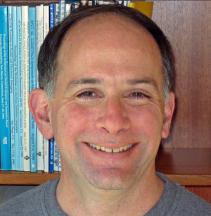
|
|





|
This group's research has both had considerable impact on the research community, as well as being shipped in Microsoft products such as the Static Driver Verifier and FX/Cop and other, widely-used internal software development tools. Larus then became the Research Area Manager for programming languages and tools and started the Singularity research project, which demonstrated that modern programming languages and software engineering techniques could fundamentally improve software architectures. Subsequently, he helped start XCG, which is developing the hardware and software to support cloud computing. Before joining Microsoft, Larus was an Assistant and Associate Professor of Computer Science at the University of Wisconsin-Madison, where he published approximately 60 research papers and co-led the Wisconsin Wind Tunnel (WWT) research project with Professors Mark Hill and David Wood. WWT was a DARPA and NSF-funded project investigated new approaches to simulating, building, and programming parallel shared-memory computers. Larus’s research spanned a number of areas: including new and efficient techniques for measuring and recording executing programs’ behavior, tools for analyzing and manipulating compiled and linked programs, programming languages for parallel computing, tools for verifying program correctness, and techniques for compiler analysis and optimization. Larus received his MS and PhD in Computer Science from the University of California, Berkeley in 1989, and an AB in Applied Mathematics from Harvard in 1980. At Berkeley, Larus developed one of the first systems to analyze Lisp programs and determine how to best execute them on a parallel computer. |

|
Gerard Salton (1927- 1995) A towering figure in the field of information retrieval, Gerard Salton synthesized ideas from mathematics, statistics, and natural language processing to create a scientific basis for extracting semantics from word frequency. The impact of his contributions is profound - five textbooks, over 150 research papers, and dozens of Ph.D. students. The modern computer science and information science research scene, with its terabyte databases, Web, and related technologies, owes a great deal to Gerry's pioneering efforts.
This lecture series honors our former colleague with speakers who similarly are innovators in their fields.
|

|
Jim Larus Microsoft Research
James Larus is a Director of the eXtreme Computing Group (XCG) in Microsoft Research. Larus has been an active contributor to the programming languages, compiler, and computer architecture communities. Larus became an ACM Fellow in 2006. Larus joined Microsoft Research as a Senior Researcher in 1998 to start and, for five years, led the Software Productivity Tools (SPT) group, which developed and applied a variety of innovative techniques in static program analysis and constructed tools that found defects (bugs) in software. |